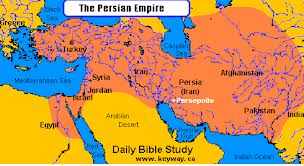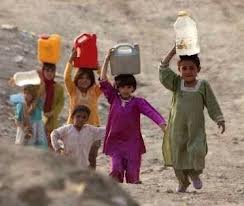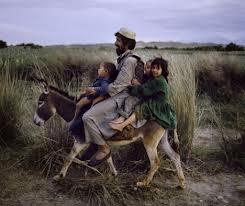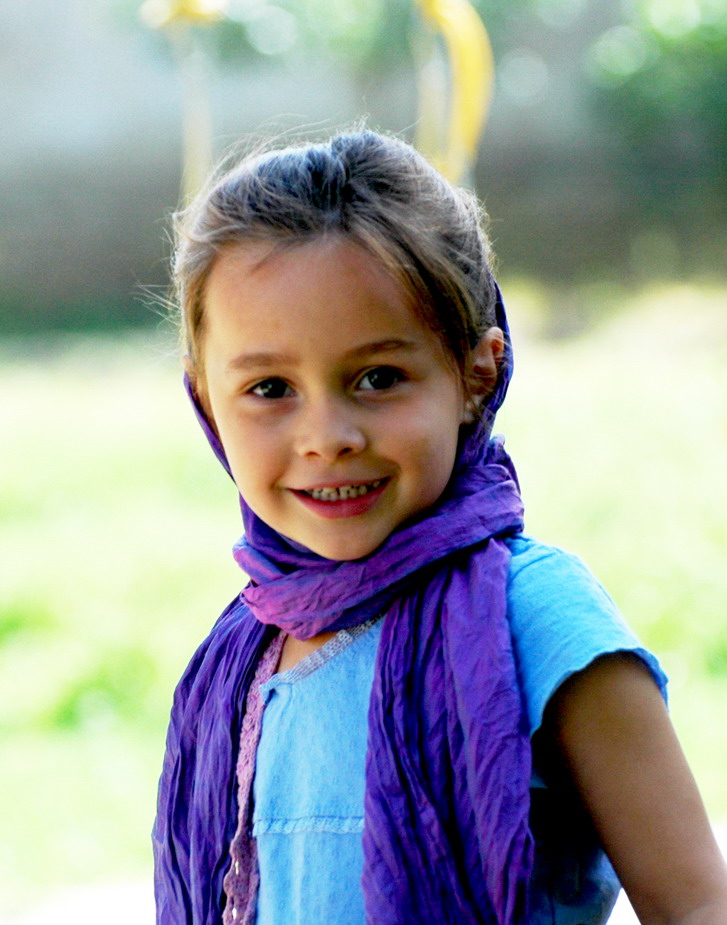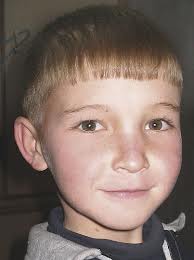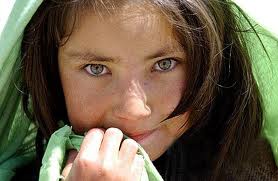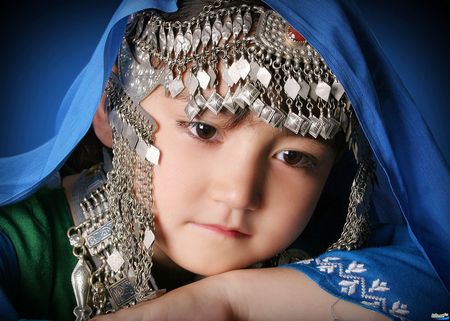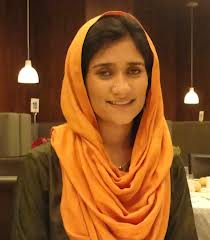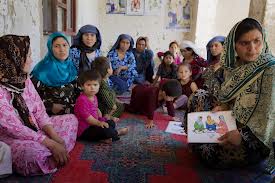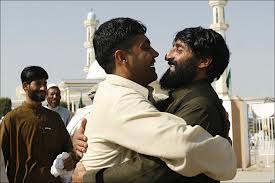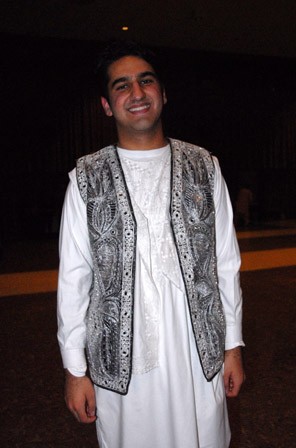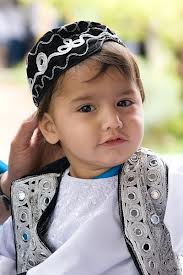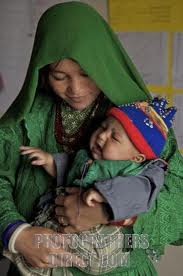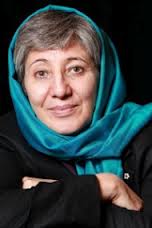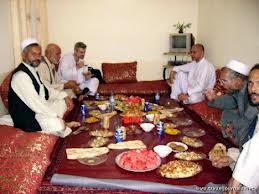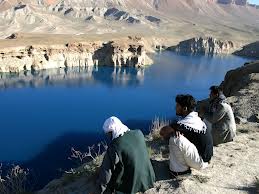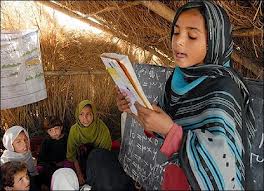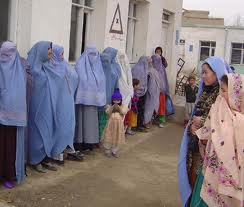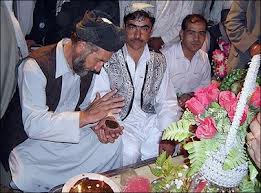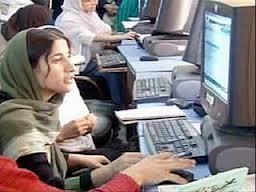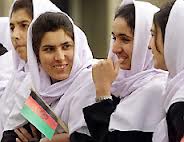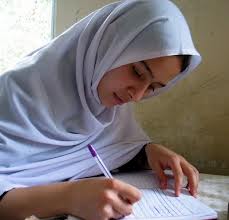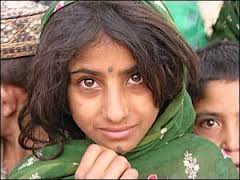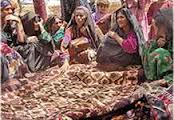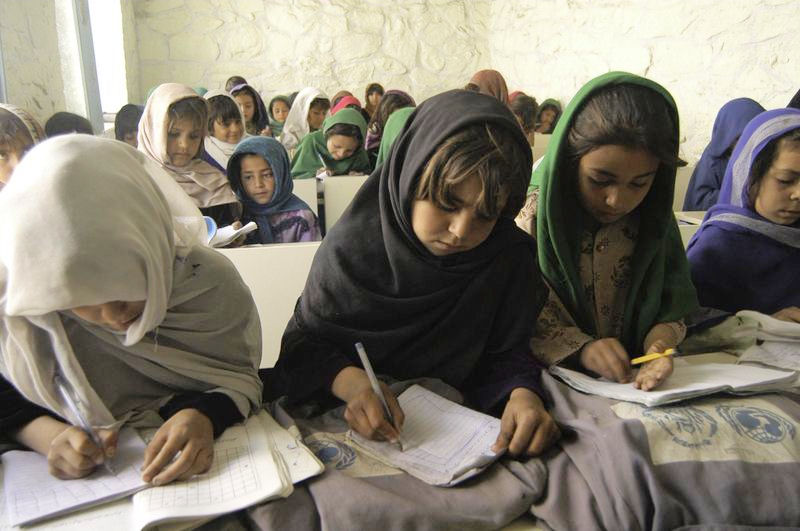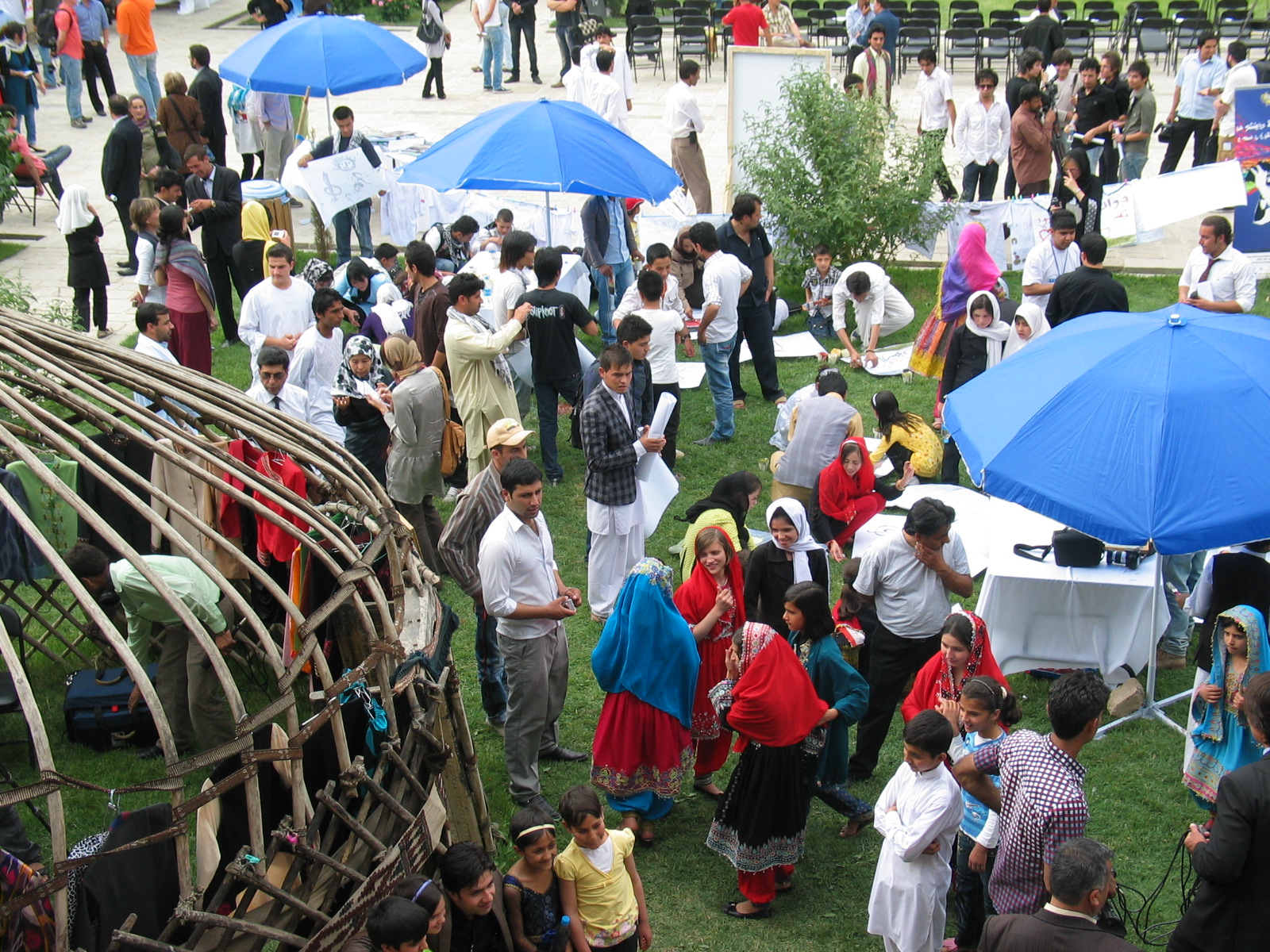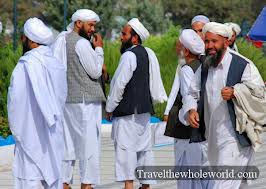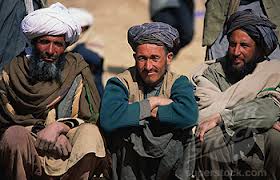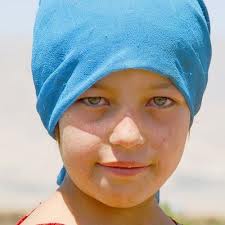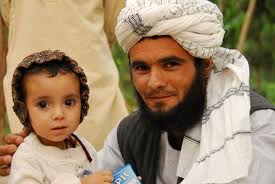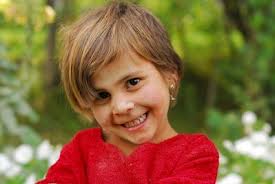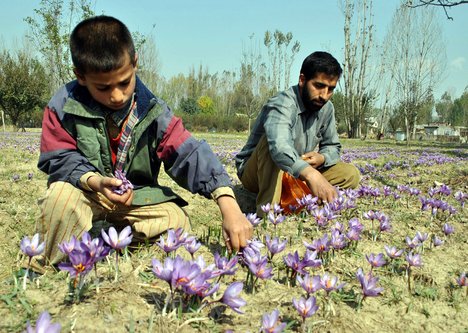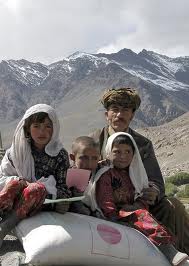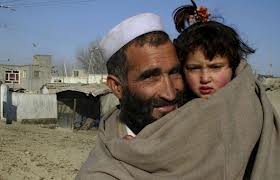GETTING TO KNOW THE BEAUTY OF THE AFGHAN PEOPLE, PART 2
GETTING TO KNOW THE BEAUTY OF THE AFGHAN PEOPLE
PART 2
Compiled by Nancy B. Detweiler, M.Ed., M.Div.
Afghanistan is made up of diverse tribal kingdoms.[i] People have lived in Afghanistan since at least 7000 B.C.[ii] As part of the ancient Persian Empire, Afghanistan has been a crossroads for travelers of many nationalities and cultural influences. The ancient Chinese Silk Road Trade Route ran through Afghanistan on its way to the Mediterranean Sea. Although their cultural history was rich for over 5,000 yrs, the country has been stymied culturally since the 17th century by the lack of prolonged periods of peace in which cultural pursuits are possible.
The Afghan people are fiercely independent in nature. This innate inner strength can be seen in their eyes. The astounding beauty of the Afghan people can be seen in the children. Look into their eyes … see them smile in circumstances that defy happiness and yet their inner light and joy shines forth.
Afghan children [iii]
“All [human] creatures are God’s children, and those dearest to God are the ones who treat His children kindly.”
Islam. Hadith of Baihaqi
“You are the children of the Lord your God.”
Judaism & Christianity. Deuteronomy 14:1
“Let the little children come to me; do not stop them; for it is to such as these that the kingdom of God belongs…. And he took them up in his arms, laid his hands on them, and blessed them.” Christianity. Mark 10:14-16
Father & Children
http://www.afghanforums.com/showthread.php?19034-Afghans-Afghanistan/page2
“Every child has known God,
Not the God of names,
Not the God of don’ts,
Not the God who ever does Anything weird,
But the God who only knows 4 words,
And keeps repeating them, saying,
‘Come dance with me, come dance.’” [iv]
Hafiz
14th century Persian mystic and poet
Hazara boy
http://pastmists.wordpress.com/2010/07/26/south-asia-iran-persia-and-afghanistan/
Hazara girl dressed in traditional green
http://www.joshuaproject.net/people-profile.php?peo3=12076&rog3=AF
Hazara girl
http://universalbeauty.tumblr.com/post/6467076782/hazara-girl-from-afghanistan-hazara-people
Afghan boy
http://universalbeauty.tumblr.com/post/6467076782/hazara-girl-from-afghanistan-hazara-people
Afghan woman
Shabana Basij Rasikh
http://opengatesprogram.wordpress.com/page/2/
“Shabana Basij Rasikh was born and raised in Kabul, Afghanistan…. In 2005, Shabana attended high school in the USA through the year-long Youth Exchange and Study (YES) program sponsored by the US State Department. Following her secondary school career, she worked as an Executive Assistant to the Country Director of American Councils for International Education in Kabul as a one year appointment. Shabana is the Executive Director of Afghan Youth Initiative. Shabana is a senior at Middlebury College, double-majoring in International Studies and Women and Gender Studies. She is a senior fellow at the Middlebury College Admissions Office. In addition, she is the President of HELA, a non-governmental organization that is raising money to build the first girls high school in Qalatik, her family’s ancestral village in Afhganistan; she was featured as in the October issue of Glamour as one of the “Top Ten College Women” for 2010.”
Najiba Fazzay, far right, gives a talk on maternal health care to expectant mothers in the village of Aquachanoy near Jawjzan, Afghanistan.
http://opengatesprogram.wordpress.com/page/2/
Afghan man
Afghan men hug outside of Mosque
http://news.bbc.co.uk/2/hi/8265562.stm
Men’s traditional attire
http://www.parstimes.com/gallery/afghanistan_fundraiser/
Boy in traditional male attire
Hazara woman in the traditional green with her baby
Dr. Sima Samar – 1st Hazara woman to earn her medical degree
Kabul University
http://worldoregon.org/persona/sima-samar
Women of Afghanistan
http://en.wikipedia.org/wiki/File:Women_of_Afghanistan.jpg
Afghan men
Dinner with friends – Kabul, Afghanistan
http://www.traveljournals.net/pictures/87457.html
Afghan men at one of the Band-e Amir Lakes
Afghan Home School near Jalalabad
http://www.d.umn.edu/cla/faculty/troufs/anth1095/Afghanistan.html#title
Afghan women waiting to register to vote
Kabul
http://www.payvand.com/news/04/jul/1181.html
Afghan Wedding Dress
http://dilshil.com/wedding/afghan-wedding/afghan-wedding-dresses.shtml
Afghan Wedding Reception
http://dilshil.com/wedding/afghan-wedding/afghan-wedding-dresses.shtml
School girls – Kabul
http://pakhto-pakhtun.blogspot.com/2011/06/afghanistan-school-girls.html
Afghan school girls – Kabul
http://pakhto-pakhtun.blogspot.com/2011/06/afghanistan-school-girls.html
Student – Kabul
Such pure beauty
http://pakhto-pakhtun.blogspot.com/2011/06/afghanistan-school-girls.html
“Naja is from a Pushtoon tribe in a remote, desert area of Kuz-Kunar. As part of her tribe’s custom, she received tattoos on her face when she became a young woman. These tattoos are a sign of beauty in her culture.”
“What do you hope happens to Afghanistan in the future? What kind of country do you want Afghanistan to be when you grow up?”
Answer: “I want peace. We are tired of the fighting. After all these wars we still don’t have any peace and no one is helping us. When will it come?… When I grow up I want there to be jobs and schools and roads so we don’t have to take donkeys. I want Afghanistan to stand on its own, without anyone telling us how to live.”
–Naja B., 12, Behsood, Kuz-Kunar District, Nangarhar Province
http://teacher.scholastic.com/scholasticnews/indepth/afghanistan/day_pics.asp?num=5
http://en.wikipedia.org/wiki/Afghan_rug
Afghanistan, like Iran, is famous for its handwoven Persians rugs.
http://www.labrashefineruggallery.com/Pages/HistoryofRugs.aspx
Afghan Girls’ School
No wandering, bored eyes here – Afghan children are serious about their education.
http://indigohome.typepad.com/indigohome/2009/08/building-schools-in-afghanistan.html
Afghan Youth Voices Festival
http://en.wikipedia.org/wiki/File:2011_Afghan_Youth_Voices_Festival.jpg
Afghan men at Friday prayers – Mosque in Herat
Afghan men
NOMADIC TRIBES
The nomads are called the Kuchi.[v] The Kuchi lead their herds of goats and sheep “to high mountain pastures in summer. When the snow arrives in fall, they head to lower, warmer areas to spend the winter.” [vi]
Kuchi Spring Migration
http://cursor.org/stories/kuchi.html
“Kuchis live in a delicate symbiotic relationship with peasants and environment. Traditionally, they lived by selling young animals, dairy products, wool, sheepskins, meat, or bartering those goods, for wheat grain, vegetables, fruits, and other foodstuffs. Nomads contribute importantly to the national economy in terms of meat, skins and wool. The nomads provided villagers with tea, sugar, matches, kerosene, guns, etc. as well as being moneylenders to village farmers.3 Being able to move from pasture to pasture, nomads escape the limits on size of local herds which villagers are subject to. The Afghan nomads are important for the maintenance of the marginal hilly grasslands.” http://cursor.org/stories/kuchi.html
Daughter of a nomadic tribe – Shamali Plains, Afghanistan
http://www.davestravelcorner.com/photos/gallery/displayimage.php?pid=2280
Pashtun tribesman with his daughter – Sheydayi, Afghanistan
http://www.davestravelcorner.com/photos/gallery/displayimage.php?pid=2280
“Lord, give us joy in our wives and children, and make us models for the God-fearing.”
Islam. Qur’an 25.74
Afghan girl – Paghman Valley
“God is All-gentle to His servants, providing for whomsoever He will.”
Islam. Qur’an 42.19
Gathering Saffron flowers
“God is love.” Christianity. I John 4:8
Afghan family
http://awwproject.org/wp-content/uploads/2010/09/afghan-family.jpg
“The Lord is good to all, and his compassion is over all that he has made.”
Judaism & Christianity. Psalm 145:9
“Compassion is a mind that savors only Mercy and love for all sentinent beings.”
Buddhism. Nagarjuna, Precious Garland 437
Afghan Father and Son
http://www.lindanorgrovefoundation.org/about-us.htm
“Honor your father and mother, that your days may be long in the land which the Lord your God gives you.” Judaism & Christianity. Exodus 20:12
Afghan Father and Daughter
http://awwproject.org/2012/07/my-father-my-teacher/
“When I was a child, my father enrolled me at the local school. After a few months, I didn’t want to go any longer. I was only six, and school made me depressed. The teachers were mean to us when we made mistakes. They would hit us. So I quit going to school.
When my father found out he bought me gifts and spoke with my teacher, but I refused to go back to school. After that, he didn’t talk to me for one week until finally he sat down with me and explained that God created good and bad people in this world and not everyone’s behavior is how we would like it. He told me that if I did not go to school I would regret it. My peers would become successful and I would have to stay home due to being illiterate and no one would want me.
He said there is nothing more important than education. He cited the holy Qu’ran and said that God and our prophet Mohammed loved educated people. Our prophet told us, “Go and learn knowledge even if it is in the farthest place of the world.” He asked me to not give up because of little struggles along the way. This speech opened my eyes. I went back to school and since then I have worked hard at my studies.
When I was ten, I loved to draw. People said my drawings were beautiful and when my dad saw my sketchbook he was happy. He told me, “I know my daughter will become very famous one day, and I will be proud of you.”
My father always brought me books to read. After I read one he would ask me to write down what I thought about the book. I began to read books on many different subjects. When he noticed that I had become interested in reading about women’s issues, he brought me books on women’s rights in Islam and other religions.
During the Taliban regime, I didn’t go to school and I read a lot and listened to the BBC broadcasts and debates about women’s issues. Whenever I had questions, I asked my dad. He always explained in detail and never tired of my questions.”
http://awwproject.org/2012/07/my-father-my-teacher/
May we remember the beauty of the Afghan people and work for World Peace by envisioning them living in peace!
“You shall love your neighbor as yourself.” Matthew 19:19
WE ARE ONE FAMILY OF GOD!
***********************************************
NOTE BY NANCY: Recently Caroline Myss wrote the following article about her experience with an Afghani man. Although the story was written as an illustration for a more extensive article, I am publishing the story alone to allow you to see the inner beauty of an Afghan man.
*A LESSON IN TRUTH: ALL LIFE BREATHES TOGETHER *
*by Caroline Myss*
http://www.myss.com/library/dailymessage/
The other day I flew to Newark, New Jersey, to give a benefit lecture on
behalf of the Trenton Soup Kitchen. I have been involved with the TSK for
five years now and I consider the work this charity does to be absolutely
magnificent. Anyway, I arrived midday and was met by a lovely, middle-aged
driver. Within minutes we were in his immaculate car heading to our
destination, which, according to his GPS, was an hour away. My first
reaction was, “Ugh, that’s half the flight time from Chicago.” My second
reaction was, “I hope this guy isn’t a chatterbox because I need to make
notes for my talk.”
Heading out of the airport, the driver and I both settled into our normal
routines. He got his GPS going and I pulled out my notebook. Then he asked,
“Is the temperature okay for you?” All he wanted to know was if the air in
the car was warm enough, right? That required a yes or a no and a thanks
for asking. But instead, something in me found his accent very curious.
Why? I grew up in a home in which half my relatives had foreign accents, as
did half the people in the neighborhood. People with accents are so common
in my life that I hardly notice them, but I noticed his. Then I noticed
that I needed to know where he came from – I mean I absolutely needed to
know. Why? I don’t know why.
So I asked him, “Where are you from? I am intrigued with your accent.”
He smiled and said, “Where do you think?” I looked at his face through the
driver’s mirror and the deep lines around his dark brown eyes blending in
with his warm smile told me that this was a good man, a very good man.
I said, “Persia.”
His eyes sparkled, “Very good, but not quite. Close. What’s next to Persia?”
I froze for a moment. My mind went blank. I needed to bring up the globe in
my mind’s eye. I said, “Okay, just a minute. You’re not Turkish. You must
be from Afghanistan.”
“Yes, I am Afghani. I came here when the Russians invaded my country. I had
just completed my degree at the university in Kabul. You can’t imagine how
beautiful Afghanistan was before all these wars. Now I have two sons and a
daughter here.”
I put my notebook down and we began to discuss his life, his journey, his
world. He told me how the turmoil of decades of war in Afghanistan has
affected his family and the lives of so many people he knows. And then he
told me that he lost his job when the company he was working for let go of
many of their employees. As a result, he was losing his home. That struck
him as among the more overwhelming events of his life, as he did not think
such a thing could happen in America. I told him about how many people I
knew in that same situation.
Lest you think his man was complaining about the events that had unfolded
in his life or drowning in his sorrows, that was not at all the case.
Rather, he presented these chapters of his life with a type of “matter of
fact” voice that was devoid of self-pity or anger. I was the one pressing
for more details, asking him to expand on how and why events happened as
they did in his life. I was the one picking at his wounds. If anything, he
should have dropped me off at a bus station and told me to catch the next
bus to Trenton.
Then he said, “I should be quiet now. I notice you have work to do.”
He didn’t ask me why I had come to Trenton and as I realized that, I hoped
with all my might that he would not. And then I had this overwhelming gut
feeling, that unmistakable rupture I get when I know I am right, “This man
and his wife come to the Trenton Soup Kitchen for a meal or maybe even a
few meals each week.” I knew it.
I was desperate to change the subject now. I could talk about anything –
weather, sports, Hurricane Sandy – just don’t ask me why I have come to
Trenton. Then my phone rang. It was a family member calling about another
family member who was in a very serious crisis. We were circling the
wagons, as they say. He could hear me, not because I was speaking loudly
but because I was sitting directly behind him. For fifteen minutes, I
discussed possible treatment and outcome for a beloved family member. My
voice had gotten tight. I was shutting down, withdrawing into the silence
of grief and tears. I hung up the phone, staring out the window.
This lovely Afghan man said, “You know, when my daughter was five, she was
diagnosed with this rare illness. Her female organs matured faster than her
physical body and she started to menstruate at that age. We were terrified.
We took her to a doctor and he told us that she needed to take this certain
shot once a month. It cost $1,000.00. Insurance covered that while I had my
other job but then I lost that job. I did not know what to do. I needed to
provide for my family, for my home, for their health. I was never so
frightened. I told my wife that I needed to go away for one reason. I
needed to go and be with God. I needed to be alone to take my life, my
problems directly to God. And so I went away to pray for two weeks. I had
to be alone, to do nothing but pray.
When I returned, we took my daughter to a different doctor and he said,
‘Why do you want to have her on this medication? She is perfectly healthy?’
And she is perfectly healthy. She is healed. I know that God is with me,
even through these difficult times. Yes, I am losing my home. I can replace
that. I could never replace my daughter, or my sons. And so we will grieve
the loss our own home, but for how long? Perhaps three days. But how long
would we grieve the loss of my daughter? We would grieve until the day of
our own death. And so God blessed me by showing me that he is truly with
me, with my family, and that he hears our prayers.”
By the time this wonderful man finished sharing his story, I could not stop
the tears from pouring out of my eyes.
“Do you have any water?” he asked me.
“Are you thirsty? Here, I have a bottle of water,” I said as I gave him my
water.
“No,” he said, “I am not thirsty. I am going to pray for your family member
and I am going to put those prayers into this water and you will take this
water to her. It will carry the grace and light of God’s response.”
I asked him if I could pray for his family, for his journey through
hardship and his return to right livelihood. And so, pulling up to my
friend’s house, my driver held the bottle of water in his hands and sang
prayers from the Koran. He rocked slowly back and forth in the front seat
of the car, falling deeper and deeper into an inner dialogue with God. I
closed my eyes and quietly entered into my own interior castle, holding
images of this man’s face and soul in my heart.
In the midst of this sacred ritual, I heard the sound of my friend darting
out of his home to greet me. I quickly came out of my prayer space and
signaled to him by holding up my hand, “Stay where you are. Don’t come near
this car.”
Still this dear man continued in his prayerful request that healing grace
be given to my family member. Tears now flowed from his closed eyes as his
body movements revealed that his heart beat closely with heaven’s pulse.
Finally, he opened his eyes and handed me what anyone else would take for
an ordinary bottle of Evian water. We held each other’s hands for several
seconds, thanking each other with nods of our heads and the tight grips of
our hands. Still appearing to be an ordinary Evian bottle from the outside,
I looked through the ordinary and into the extraordinary. I stared at this
bottle of water and for me it became the substance of miracles, the story
of a man’s life journey, and on the day I was picked up to do a benefit for
the homeless by a man losing his home whose very prayers I suspect may well
have contributed most to the healing of my family member. It became “holy
water.”
[All life breathes together.]







